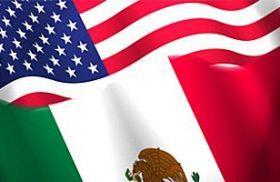
The Fresh Produce Association of the Americas (FPAA) has urged the Obama administration to oppose efforts to abolish a 16-year agreement with Mexico to provide fresh tomatoes to the US market.
FPAA, an organisation of US-based fresh fruit and vegetable importers, said special interest groups are using election-year politics to “try to start a trade war” that will disrupt what the group described as a successful supply of fresh tomatoes at stable prices for millions of US consumers.
The US Department of Commerce has announced it is opening a review of the trade agreement in response to Florida tomato growers seeking to end the pact that has governed the price of imported Mexican vine-ripened tomatoes since 1996.
“In this economy, the last thing we need is a trade war with our second largest trading partner that hits American families in the pocketbook,” explained FPAA president Lance Jungmeyer in a press release.
The US is Mexico’s largest receiver of tomatoes, with imports totalling US$1.3bn last year, according to FPAA.
FPAA said that US officials have expressed concern that if Florida special interests are successful in convincing the administration to end the tomato trade agreement, Mexico could retaliate against American agricultural exports to Mexico.
Last year the US exported billions of dollars of farm products to Mexico including US$870m in poultry, US$816m in pork, US$762m in beef and US$39m in potatoes, according to US Department of Agriculture statistics.
“Time and time again, we have seen how allowing politics to influence trade decisions creates far more losers than winners in the long run,” US Sen. John McCain (R-AZ) said in a letter to the Department of Commerce.
That trade pact, known as the Tomato Suspension Agreement, has kept the prices of Mexican and American tomatoes on fair footing in the marketplace by setting guidelines for Mexican tomato prices, according to FPAA.
“If the Commerce Department were to permit this action, it would raise prices to consumers at the checkout line at a time when Americans can least afford it,” US Rep. Raul M. Grijalva (D-AZ) said in a letter to Acting Commerce Secretary Rebecca M. Blank.
FPAA added that the agreement also has provided consumers greater tomato choices, particularly in winter months when the vine-ripened Mexican tomatoes are available in US stores.
“It would be against consumer interest to effectively pull these items from the shelf so that a narrow interest group can limit its competition through protectionism,” Jungmeyer noted.



